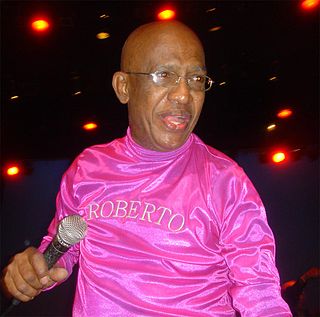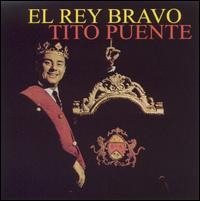Mambo is a genre of Cuban dance music pioneered by the charanga Arcaño y sus Maravillas in the late 1930s and later popularized in the big band style by Pérez Prado. It originated as a syncopated form of the danzón, known as danzón-mambo, with a final, improvised section, which incorporated the guajeos typical of son cubano. These guajeos became the essence of the genre when it was played by big bands, which did not perform the traditional sections of the danzón and instead leaned towards swing and jazz. By the late 1940s and early 1950s, mambo had become a "dance craze" in Mexico and the United States as its associated dance took over the East Coast thanks to Pérez Prado, Tito Puente, Tito Rodríguez and others. In the mid-1950s, a slower ballroom style, also derived from the danzón, cha-cha-cha, replaced mambo as the most popular dance genre in North America. Nonetheless, mambo continued to enjoy some degree of popularity into the 1960s and new derivative styles appeared, such as dengue; by the 1970s it had been largely incorporated into salsa.

Juan Luis Guerra Seijas is a Dominican musician, singer, composer, and record producer. He has sold 15 million records worldwide, making him one of the best-selling Latin music artists. Throughout his career, he has won numerous awards including 24 Latin Grammy Awards, three Grammy Awards, and one Latin Billboard Music Award. He won 3 Latin Grammy Awards in 2010, including Album of the Year. In 2012, he won the Latin Grammy Award for Producer of the Year.
Boogaloo or bugalú is a genre of Latin music and dance which was popular in the United States in the 1960s. Boogaloo originated in New York City mainly by stateside Puerto Ricans with African American music influences. The style was a fusion of popular African American rhythm and blues (R&B) and soul music with mambo and son montuno, with songs in both English and Spanish. The American Bandstand television program introduced the dance and the music to the mainstream American audience. Pete Rodríguez's "I Like It like That" was a famous boogaloo song.

Roberto Roena Vázquez was a Puerto Rican salsa music percussionist, orchestra leader, and dancer. Roena was one of the original members of Cortijo y su combo and later with El Gran Combo de Puerto Rico. He later became the leader of his own band, "Roberto Roena y Su Apollo Sound", widely considered one of the best Latin salsa bands in Puerto Rico. Roena had also been a long-time member of the Fania All Stars, a salsa supergroup that has enjoyed worldwide success since the 1970s.

Eddie Palmieri is an American Grammy Award-winning pianist, bandleader, musician, and composer of Corsican and Puerto Rican ancestry. He is the founder of the bands La Perfecta, La Perfecta II, and Harlem River Drive.

Pablo Rodríguez Lozada, better known as Tito Rodríguez, was a Puerto Rican singer and bandleader. He started his career singing under the tutelage of his brother, Johnny Rodríguez. In the 1940s, both moved to New York, where Tito worked as a percussionist in several popular rhumba ensembles, before directing his own group to great success during the 1950s. His most prolific years coincided with the peak of the mambo and cha-cha-cha dance craze. He also recorded boleros, sones, guarachas and pachangas.
RMM Records, also known as RMM Records & Video Corp, was an independent Latin music record label established in 1987 and based in New York City. The label was most active during the late 1980s and early 1990s and produced primarily salsa, Latin jazz, and merengue music. At its peak, RMM Records employed 55 staff members and had distribution deals in 42 cities around the world, occupying 9,000 square feet in two floors at its Soho headquarters. The label was established by Fania Records promoter Ralph Mercado, who had established RMM Management in 1972 as an artist management and booking agency, providing bookings for Latin artists Tito Puente, Celia Cruz, and Ray Barretto.

The 7th Annual Latin Grammy Awards were held for the first time in New York City, NY. The awards show was held at Madison Square Garden on Thursday, November 2, 2006. Shakira was the big winner winning Album of the Year, one of four awards that she won. She is the first female artist to win Record of the Year, Album of the Year, and Song of the Year.

"Oye Cómo Va" is a 1962 cha-cha-chá song by Tito Puente, originally released on El Rey Bravo. The song achieved worldwide popularity when it was covered by American rock group Santana for their album Abraxas. This version was released as a single in 1971, reaching number 13 on the Billboard Hot 100, number 11 on the Billboard Easy Listening survey, and number 32 on the R&B chart. The block chord ostinato pattern that repeats throughout the song was most likely borrowed by Puente from Cachao's 1957 mambo "Chanchullo", which was recorded by Puente in 1959.
Premio Lo Nuestro 2008 was held on February 21, 2008, at the American Airlines Arena in Miami, Florida. It was broadcast live by Univision Network.
The 2008 Billboard Latin Music Awards, produced and broadcast live on Telemundo, was held on Thursday, April 10, 2008. The award show aired on Telemundo at 7pm EST.
Manny Oquendo was an American percussionist of Puerto Rican ancestry. His main instruments were the timbales and the bongos.
The 2003 Billboard Latin Music Awards, produced and broadcast live on Telemundo, were held on Thursday, May 8, 2003. The award show aired on Telemundo at 7pm EST. The awards show was held at the Miami Arena in downtown Miami, Fl.
The Billboard Latin Music Awards grew out of the Billboard Music Awards program from Billboard Magazine, an industry publication charting the sales and radio airplay success of musical recordings. Originally launched as the Billboard Latin Music Conference in 1990, the first awards began in 1994. In addition to awards given on the basis of success on the Billboard charts, the ceremony includes the Spirit of Hope award for humanitarian achievements and the Lifetime Achievement award, as well as awards by the broadcasting partner.

The 11th Annual Latin Grammy Awards were held on Thursday, November 11, 2010, at the Mandalay Bay Events Center in Las Vegas, Nevada. It was the third time the annual event had taken place at this location. The eligibility period for recordings to be nominated was July 1, 2009 to June 30, 2010. Nominations were announced on September 8, 2010. On September 14, 2010, it was announced that the Latin Recording Academy Person of the Year honoree would be Plácido Domingo. The big winners of the night were Camila, Juan Luis Guerra and Gustavo Cerati with three awards.
Puchito Records was Cuba's second independent record label. It was founded in 1954 during the mambo and cha-cha-chá explosion of the 1950s. Many of its recordings, produced by its founder Jesús Gorís (1921–2006), became instant hits. Cuban music styles represented in its discography include danzón, güajira, son cubano, son montuno, cha-cha-chá, guaracha, guaguancó, Cuban bolero, Cuban rumba, mambo, new flamenco, and Zarzuela. Other styles include farruca, merengue (Dominican), Ranchera (Mexican), nueva canción (Mexican) ... styles from Spain include cuplé, pasodoble, and flamenco. The ensembles range from studio orchestras to jazz combos to big bands to charangas.
The 8th annual Billboard Latin Music Awards which honor the most popular albums, songs, and performers in Latin music took place in Miami.
This article includes an overview of the major events and trends in Latin music in the 1980s, namely in Ibero-America. This includes recordings, festivals, award ceremonies, births and deaths of Latin music artists, and the rise and fall of various subgenres in Latin music from 1980 to 1989.
This article includes an overview of the major events and trends in Latin music in the 1970s, namely in Ibero-America. This includes recordings, festivals, award ceremonies, births and deaths of Latin music artists, and the rise and fall of various subgenres in Latin music from 1970 to 1979.
Edwin "Eddie" Montalvo is an American percussionist and bandleader of Puerto Rican descent. Born and raised in the Bronx, he best known for playing the Congas for Hector Lavoe, Rubén Blades as well as with the Fania All-Stars.






